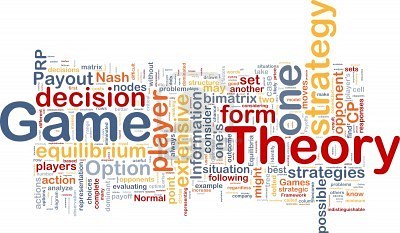
Game theory is the study of how people act when presented with strategic situations. Game theory studies interactive decision-making. Game theory can also be viewed as analysis of the concepts used in social reasoning when dealing with situations of decision making and conflicts. It builds an abstract between theory and real life situations.
A game is the environment where strategic interactions occur and it consists of three key aspects namely players, strategies and payoffs. The players are the individuals that make the relevant decisions; strategies are the options available to each player and the payoffs are the benefit per choice of options each player receives contingent upon the actions of all players participating in the game. In Skillted, a game occurs when users (the players in the game) that want to barter skills begin to bargain time and deadlines for activities.
A concept in game theory, by American Mathematician, John Forbes Nash, known as Nash equilibrium, is a strategy combination in which each player’s chosen strategy is a best response to the strategies of the other players, so that no player can get a higher expected payoff by changing strategy as long as the strategies of the other players stay the same.
We can say a Nash Equilibrium is attained if there is no incentive for any of the bargainers to deviate from the norm with Nash equilibrium.
Pareto optimality is a state in which there is no choice in which all players receive their highest payoffs. This could occur if the skills being bartered do not require the same time commitment.
The two person bargaining problem (also known as the Nash bargaining game) is a commonly studied game in game theory. Nash bargaining situation involves two individuals that have the opportunity to collaborate for mutual benefits in more than one way. Nash’s solution is one where each player gets her payoff and share the benefits accrued from cooperating.
References
-Von, N. J., & Morgenstern, O. (1944). Theory of games and economic behavior. Princeton: Princeton University Press.
-Nash Equilibrium, The Nash Bargaining Solution, And The Shapley Value -http://science.jrank.org/pages/9421/Game-Theory-Nash-Equilibrium-Nash-Bargaining-Solution-Shapley-Value.html
-http://science.jrank.org/pages/9421/Game-Theory-Nash-Equilibrium-Nash-Bargaining-Solution-Shapley-Value.html#ixzz3YakgjhKs
-Nash Jr, John F. “The bargaining problem.” Econometrica: Journal of the Econometric Society (1950): 155-162.
Image Credit: http://svprojectmanagement.com/

Please comment with your real name using good manners.